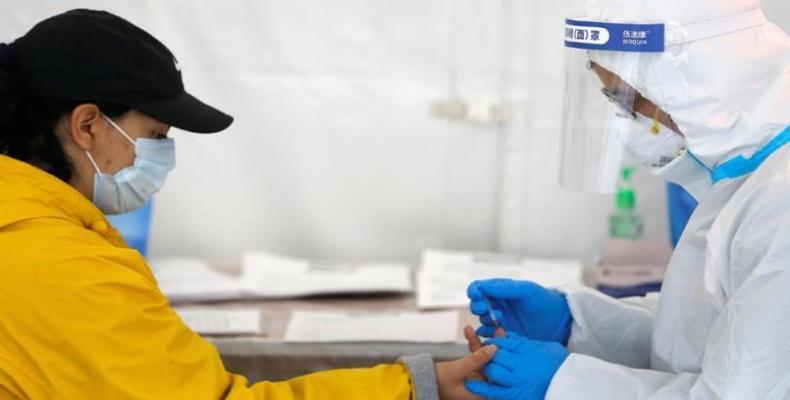Geneva, April 25 (RHC)-- The United Nations's health agency has warned there is no scientific evidence to prove that people who have recovered from the coronavirus develop immunity against potential infection in the future.
The World Health Organization (WHO) gave the warning on Saturday as a number of countries consider issuing so-called "immunity passports" to people who have recovered from COVID-19, the disease caused by the virus.
The WHO said such a move could actually increase the transmission of the novel coronavirus as people who have recovered may ignore advice about taking standard precautions against the virus, which has so far killed more than 199,000 people amid 2.8 million infections worldwide.
"Some governments have suggested that the detection of antibodies to the SARS-CoV-2, the virus that causes COVID-19, could serve as the basis for an 'immunity passport' or 'risk-free certificate' that would enable individuals to travel or to return to work assuming that they are protected against re-infection," the WHO said.
"There is currently no evidence that people who have recovered from COVID-19 and have antibodies are protected from a second infection."
A number of governments have proposed a gradual return to work, as restrictions imposed on movement to curb the spread of the virus have crippled economies around the world.
Last week, Chile announced plans to give "health passports" to patients who have recovered from COVID-19. Once checked for the presence of antibodies, they would be allowed to go back to work, officials said.
"We understand the intention of trying to see who can go safely back to work or who could be eventually risk-free of infecting other people," WHO spokesman Tarik Jaserevic told Al Jazeera. "But unfortunately, from a scientific point of view, we simply don't know if a person who has been infected by the coronavirus gets this immunity, and if a person gets this immunity, how long it's lasting."
The WHO also believes that the serological tests currently used to look for the presence of antibodies "need additional validation to determine their accuracy and reliability."
In particular, tests need to be able to distinguish between the immune response to the novel coronavirus from the antibodies produced during an infection of the other six known human coronaviruses, four of which are widespread, causing mild colds.


